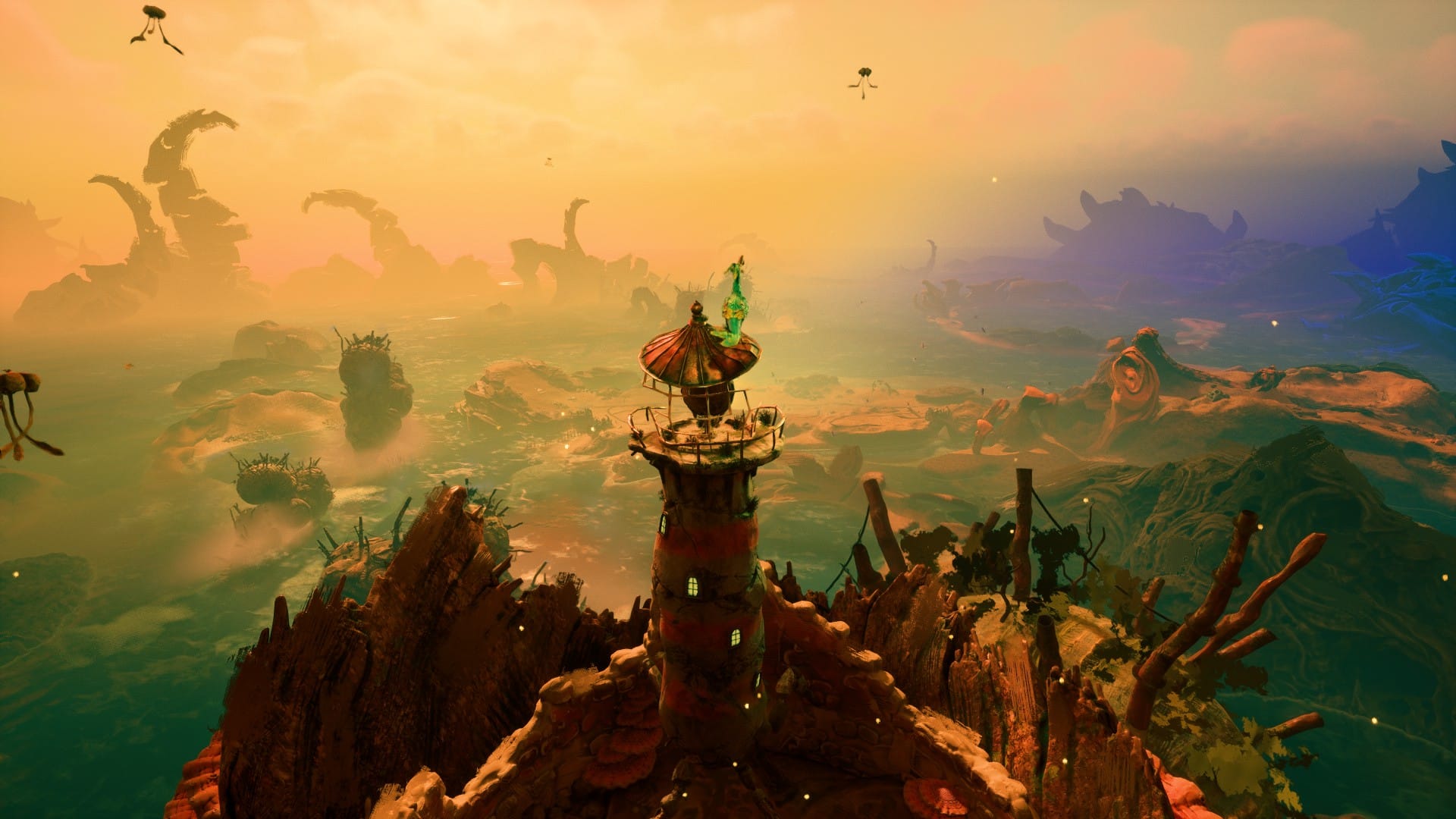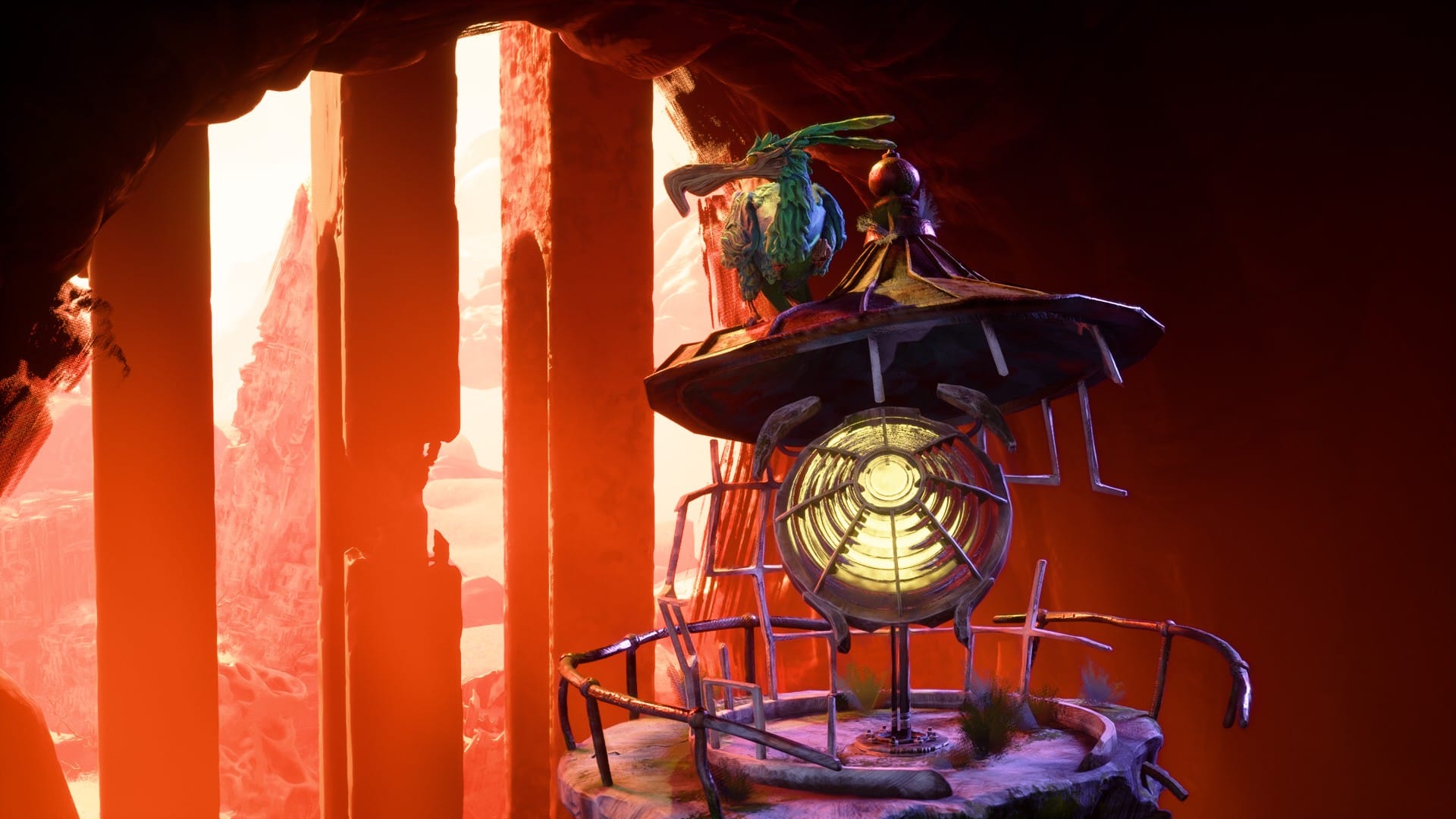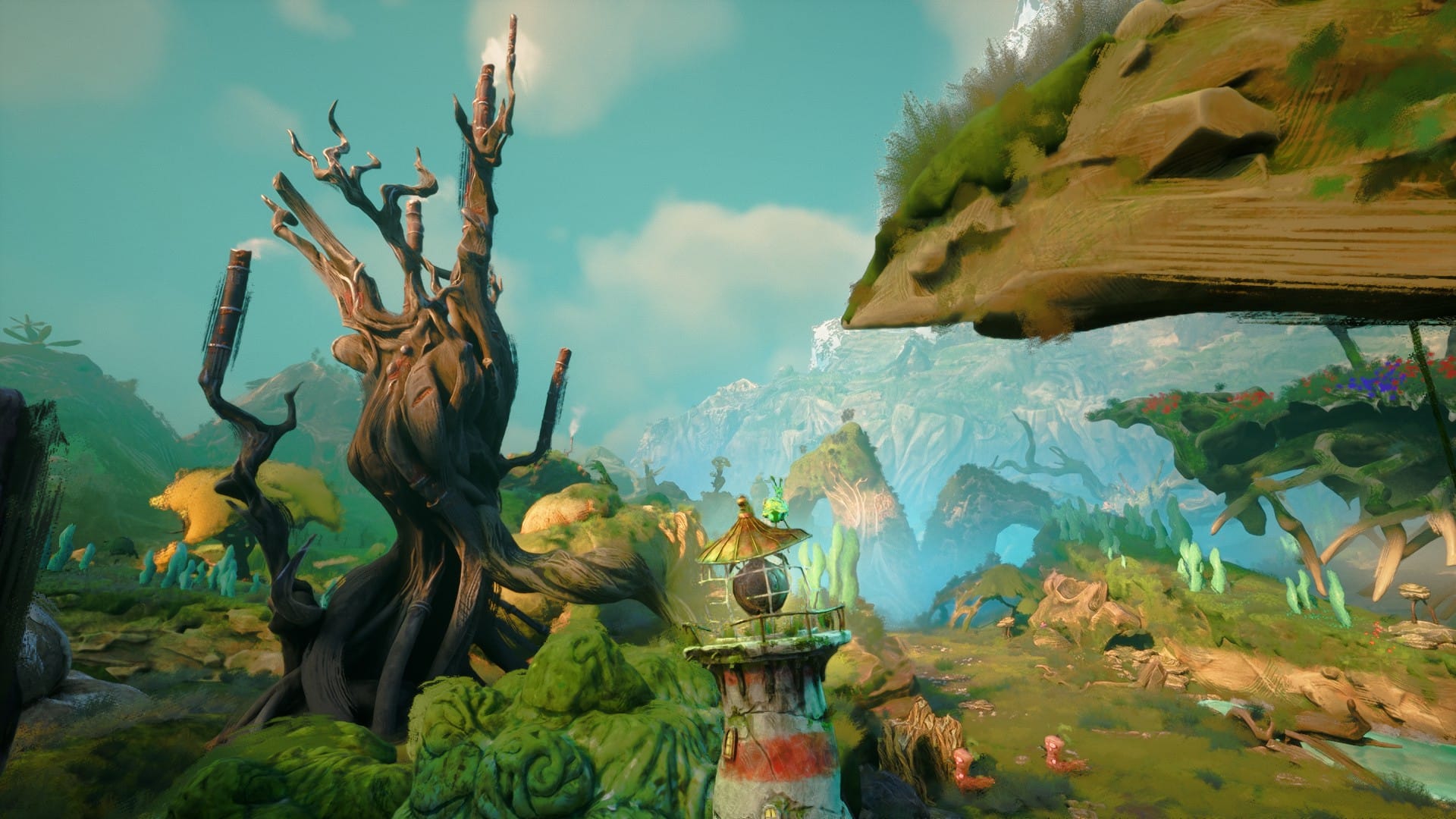Double Fine has a long-running penchant for creating bizarre, quirky adventure games with memorable worlds and characters. From classics like Grim Fandango and Day of the Tentacle to the renowned Psychonauts games, there’s a wealth of unique characters, worlds, and tales in their catalogue. Given that history, a game about a sentient, quadrupedal lighthouse helping a bird shouldn’t have given me any pause, and yet I perpetually find myself slack-jawed with what they deliver.

Keeper has you taking on the role of a lighthouse that takes on a life of its own. When a bird found itself trying to outrun an ominous darkness, it swooped down and landed on the structure. The decrepit lighthouse, untouched for some vast amount of time, awoke with the arrival of its new visitor, beaming safety just as the force was about to befall its prey. With the immediate threat gone, the structure sheds its base, growing a spindly set of legs. With this, the lighthouse and its newfound perched resident set out to return our feathery friend to its flock.
The story of Keeper is one with many twists and turns, and while I don’t want to spoil them for anyone, I want to say it’s an interesting journey that has the potential to force introspective questioning, not only in the game world, but the world where we reside, too. At least, I hope that’s the case, as it was for me. Should the player choose not to engage with the narrative on a deeper level, I have to imagine the story will come off as bizarre and confusing, with a couple of punctuating moments. With that deeper analysis in mind, the tale of Keeper spoke to several meaningful concepts for me: wonderment, light in darkness, accepting help from your community, and so much more. The ludonarration is impressive, telling such a meaningful story without even using words.

The title, on its face, is a simple action-adventure game. You’ll walk around, shining your light on various objects to affect them. Twig, your bird companion, can be sent out to interact with objects for some light puzzle work. The world is catered, so the journey is a bit confined, but between the storytelling and puzzle-solving, it works well. While the puzzles aren’t likely to have you racking your brain, they’re satisfying exercises that will make your neurons fire a bit. It feels like Sword of the Sea, albeit in a more cerebral, less cinematic manner.
Given the simplicity of mechanics in the game, I was afraid the experience would get boring before the credits rolled. While they keep things brief (it took me around 4 hours to finish the game), Keeper did an excellent job introducing new mechanics several times throughout the experience. I’d be lying if I said things didn’t feel long in the tooth once or twice, but the pivots were always worth the push. The game does a great job of hiding secrets throughout as well, giving you some more reward for your time spent poking and prodding.

Given its heavy use of environmental storytelling, the game’s visual design had to be something memorable. It feels like Keeper owes much of its visual design to surrealist influences like Salvador Dali or films like The Nightmare Before Christmas. While my brain doesn’t always jive with those eerie dreamlike exaggerations, after some time with the game, I found Keeper’s aesthetic to be endearing in a somewhat unsettling way. The various wildlife scattered around the world, the play of light and dark, the dilapidated structures and monuments left standing — it all builds a fascinating world. The experience is punctuated by an atmospheric soundtrack that sets the mood without ever becoming a distraction.

While Keeper may not be an experience for everyone, those who take the time to engage with it and really think about the story being told will walk away with a deserved sense of satisfaction. While it can occasionally feel somewhat monotonous, there are plenty of mechanics and shifts throughout the game to keep things interesting to the end. The aesthetic is unique and memorable, though it may not be everyone’s cup of tea. That said, I recommend everyone spend a few hours walking around, helping others, exploring, and pondering the world around us — first in Keeper, then on your own.
Keeper
Great
Keeper is a fascinating tale full of moments that will make you think — not just about the game, but life and our place in the world. The visuals are intriguing, and the on-screen action is supported by a solid soundtrack. The mechanics are simple and can become a little monotonous at times, but there’s always something new around the next bend. While Keeper may not be a game that appeals to everyone, the nature of the story ensures that it’s certainly a game that’s for everyone.
Pros
- Fascinating visual design
- Thought-provoking thematic elements
- Short experience that rarely overstays its welcome
Cons
- The aesthetic may not be for everyone
- If you aren’t interested in deep thought, Keeper is just going to come off as weird
- Some of the story beats might not click for everyone
This review is based on a retail PC copy provided by the publisher.





















